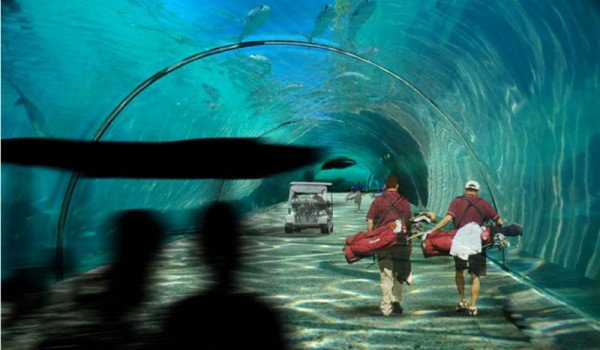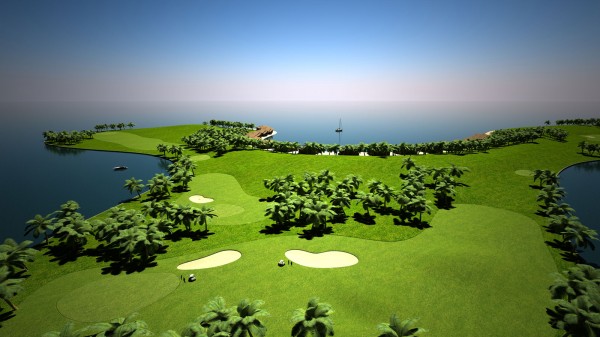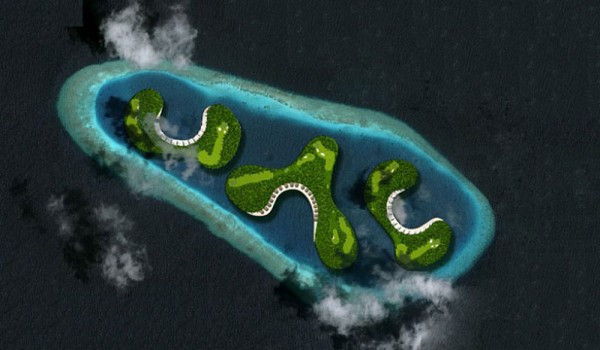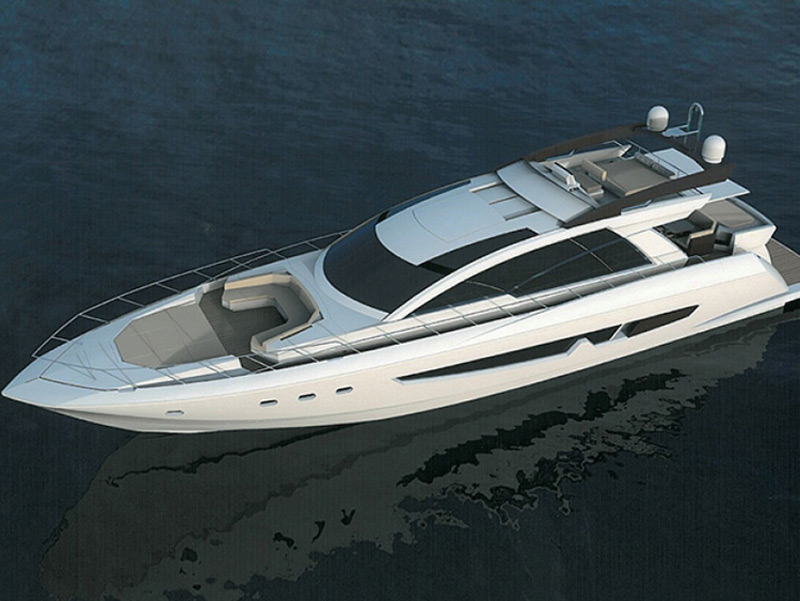If you build it – they will come. At least that’s what developers must be thinking as they launch plans for the World’s First Floating Golf Course in the Maldives. The extraordinary $500 million design boasts 27 holes, is set upon three linked islands and features around 200 villas, 45 private islands and a conservation center. An underwater tunnel leads golfers to different islands between shots, as well as to the clubhouse where a glass elevator goes to a main bar which doubles as an aquarium.
The course will be made up of a series of floating platforms containing two or three holes each, which will be linked together and to a series of surrounding hotels by underwater tunnels. Waterstudio.NL designed the project, which is being engineered by floating-architecture expert Dutch Docklands. Troon Golf is on hand to offer their expertise in the design of the course itself.
Unlike other floating islands and resorts guzzling energy off the coast of Dubai, course developers call their project a scarless development which will have a zero carbon footprint on the Maldives ecosystem. The project also has an environmentally aware side – it will be powered by solar energy with sustainable desalination and water cooling techniques, and will work in co-operation with the Maldives’ rising sea levels.
The Maldives, whose highest point is only 7.5 feet above sea level, has committed to becoming the world’s first carbon neutral country by 2020. The nation already includes one artificial island, Hulhumale, which was completed in 2004, and covers an area of 445 acres. The President of the Maldives Mohamed Nasheed is a world famous advocate for active measures against climate change and even held a cabinet meeting underwater to highlight the risk of rising sea levels to his nation.
Nasheed has also announced that he’s looking to purchase new land in other countries to resettle Maldivian refugees potentially affected by climate change. To fund those efforts, the government is looking to further boost revenues from the nation’s largest economical contributor: tourism.
The $500 million floating golf course project anticipates doing just that: bringing a wealth of ecological tourism and investment to the Maldives. Development on the course is expected to begin later this year, and it should be ready for play by the end of 2013 ahead of the full launch in 2015.











